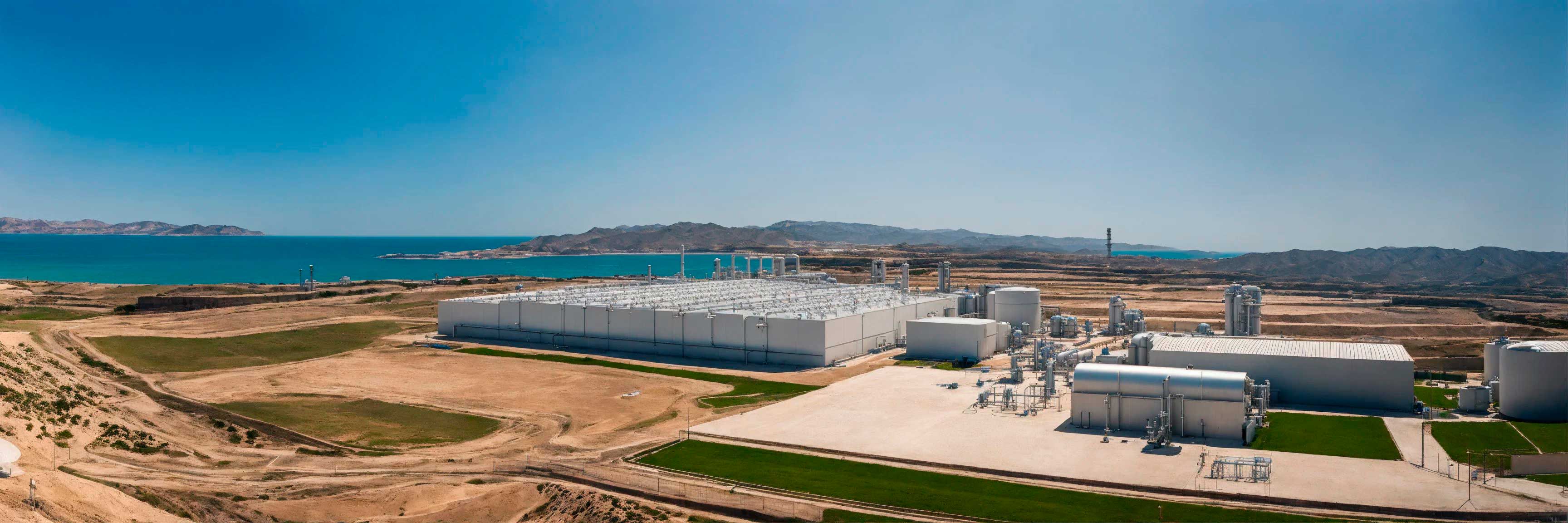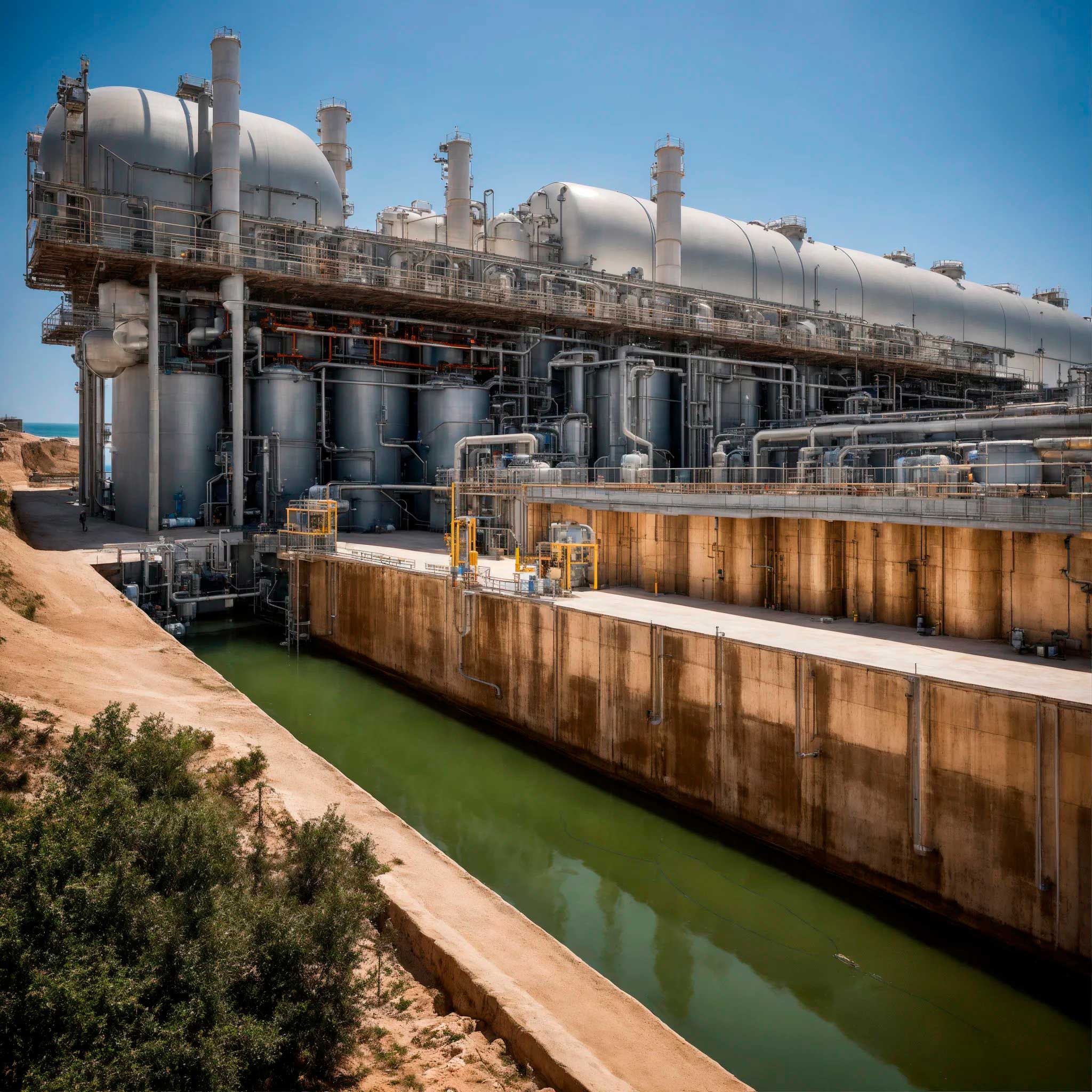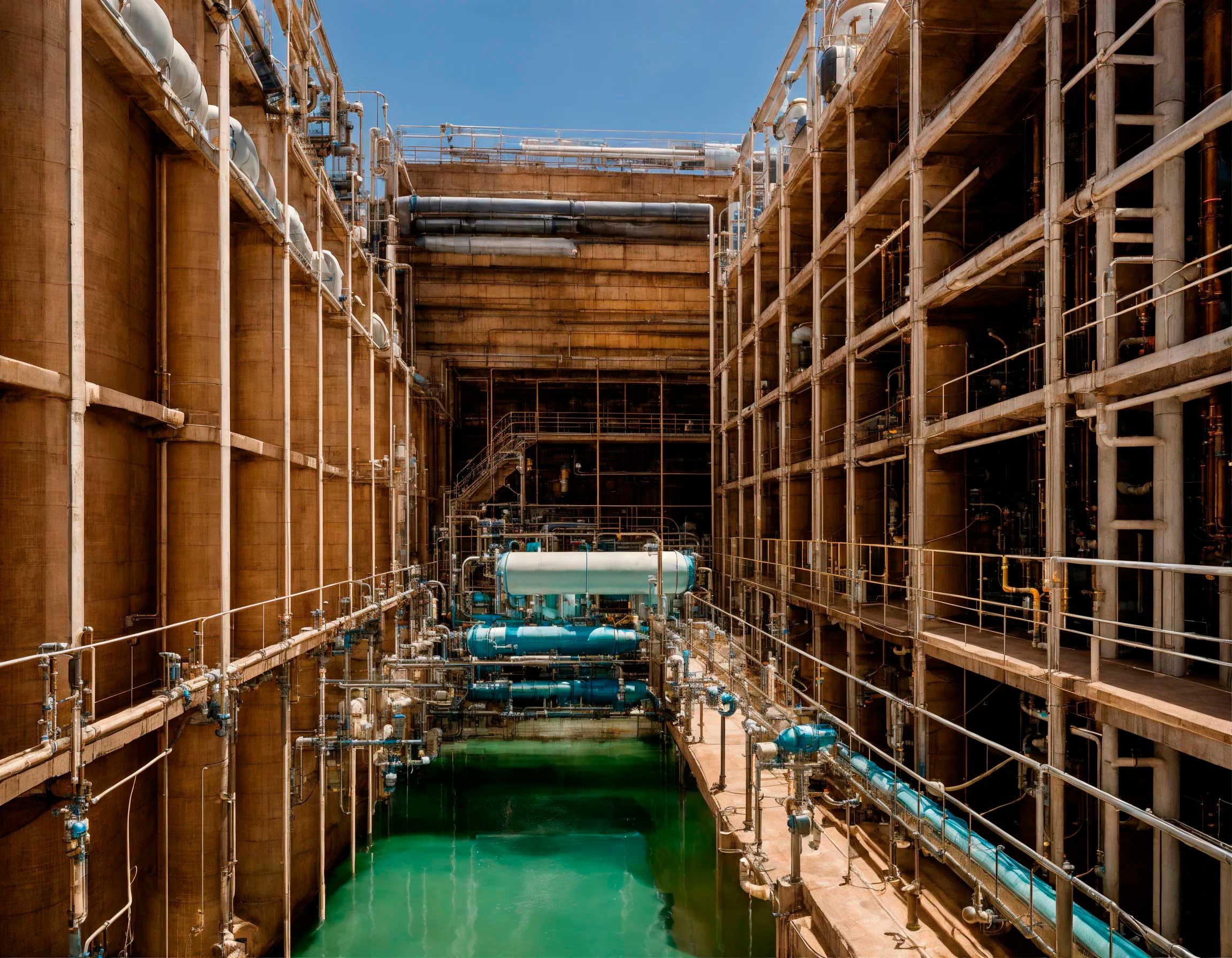EURECA
Good Practices



 Pictures:
Pictures:Generic desalination plant created by IA
Valencia Desalination Plant: Nurturing Urban Ecology Through Sustainable Water Solutions
Country:Main Subject:
Description:
The desalination plant in Valencia serves as a notable example of integrating technology with ecological considerations. Valencia, being a coastal city with periodic water scarcity issues, has implemented innovative solutions to ensure a sustainable water supply.
The Valencia Desalination Plant is strategically located along the coast, allowing it to leverage seawater as a source for desalination. This minimizes the impact on freshwater resources from inland areas and supports urban water needs.
The plant incorporates energy-efficient desalination technologies, including reverse osmosis, to convert seawater into freshwater. This focus on energy efficiency aligns with urban ecology principles by reducing the carbon footprint associated with water treatment processes.
Some desalination plants in Spain, including those in Valencia, have integrated the use of renewable energy sources into their operations. By utilizing solar or wind energy, these plants contribute to urban ecology goals by promoting sustainable practices and reducing dependence on non-renewable energy.
Proper brine management is crucial to prevent negative impacts on the marine environment. The Valencia Desalination Plant employs advanced brine disposal methods, ensuring that the concentrated brine resulting from desalination is carefully managed to minimize ecological disturbances in the coastal ecosystem.
The desalinated water produced by the plant is integrated into the urban water supply network, providing an additional and sustainable source of freshwater for the city. This integration helps meet the water demand of the urban population while easing pressure on traditional freshwater sources.
Ongoing research and monitoring initiatives are integral to the Valencia Desalination Plant's operations. Environmental impact assessments and studies on the plant's effects on local ecosystems contribute to the ongoing improvement of desalination practices with a focus on minimizing ecological disruption.
The Valencia project places importance on community awareness and engagement. Educating the local population about the benefits and challenges of desalination technology fosters a sense of responsibility and environmental stewardship, aligning with urban ecology principles.
The Valencia Desalination Plant serves as a positive example of how desalination technology can be implemented in a manner that supports urban water needs while respecting ecological considerations in a coastal urban environment.
Reference links:
https://www.acuamed.es/media/publicaciones/Acuamed_Folleto_IDA13.pdf
https://www.acuamed.es/en/action/desalination-plant-sagunto-valencia
https://www.imida.es/documents/13436/877249/06_REPORT_ON_WATER+DESALINATION.pdf/ae6203f4-68f9-4a37-b728-22b5d247909e
https://www.belvessels.com/sites/default/files/projects/case-study_2.pdf
https://www.setapht.com/proyectos/planta-desalinizadora-de-sagunto-valencia/
SDG direct/ indirect short justification:
DIRECT SDGs:
- Clear water and sanitation: Ensure Availability and sustainable management of water and sanitation for all (SDG 6)
- Industry, innovation and infrastructure (SDG 9)
- Sustainable cities and communities (SDG 11)
INDIRECT SDGs:
- Life on land (SDG 15)
- Good Health and Well Being (SDG 3)
- Responsible Consumption and Production (SDG 12)
- Climate Action (SDG 13)
- Life below water (SDG 14)
Justification:
- Clear water and sanitation (SDG 6): Valencia Desalination Plant best practice directly contributes to SDG 6 by providing a sustainable source of clean water, particularly in coastal urban areas facing water scarcity, directly supporting the goal of ensuring availability and sustainable management of water.
- Industry, innovation, and infrastructure (SDG 9): Valencia Desalination Plant demonstrates innovation in desalination technology and sustainable infrastructure development, aligning with SDG 9 while it encourages innovation in water-saving technologies, contributing to sustainable industry practices.
- Sustainable cities and communities (SDG 11): Valencia Desalination Plant example directly contributes to creating sustainable urban water solutions, fostering resilience in the face of water scarcity. It promotes sustainable water use in urban and industrial settings, supporting the development of sustainable communities.
- Life on land (SDG 15): Valencia Desalination Plant minimizes the impact on terrestrial ecosystems by relying on seawater for desalination, indirectly contributing to SDG 15. By reducing pressure on freshwater sources, indirectly supports the preservation of land ecosystems.
- Good Health and Well Being (SDG 3): Valencia Desalination Plant ensures a sustainable supply of clean water, directly contributing to improved health and well-being, aligning with SDG 3.
- Responsible Consumption and Production (SDG 12):This best practice example encourages responsible water consumption practices, aligning with SDG 12's focus on sustainable consumption.
- Climate Action (SDG 13): Valencia Desalination Plant addresses water scarcity challenges exacerbated by climate change, contributing indirectly to SDG 13.
- Life below water (SDG 14): Valencia Desalination Plant minimizes the impact of desalination on marine ecosystems through responsible brine management, indirectly contributing to SDG 14.
Keywords:
City:
Questions:
- What type of desalination technology does the Valencia Desalination Plant utilize, and how does it contribute to urban ecology?
- How does the plant address energy efficiency in its desalination processes, and why is this important for urban ecology?
- In what way do some desalination plants in Spain, including Valencia, contribute to urban ecology through the integration of renewable energy sources?
- Why is proper brine management crucial for desalination plants, and how does the Valencia Desalination Plant address this issue?
- How does the desalinated water produced by the Valencia Plant contribute to the urban water supply network, and what benefits does this integration offer?
Authors:
Internet Web Solutions




